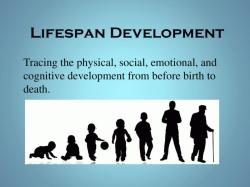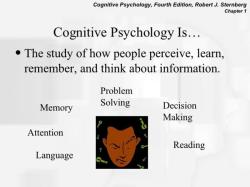Do sociopaths feel emotions?
Sociopathy, also known as Antisocial Personality Disorder (ASPD), is a complex and controversial personality disorder characterized by persistent patterns of disregard for the rights of others, impulsivity, manipulative behavior, and a lack of empathy or remorse for harm caused to others. The emotional experiences of individuals with ASPD can be quite different from those of neurotypical individuals. Here are some key points to understand about emotions in sociopaths:
Limited Empathy: Sociopaths often have a reduced capacity for empathy, which means they struggle to understand and share the emotions of others. They may not feel genuine compassion or remorse for their actions, even if they can mimic these emotions convincingly.
Shallow Emotions: Some sociopaths exhibit shallow emotional responses. They may have difficulty experiencing deep emotional connections or intense emotional states like love, fear, or sadness. Instead, they may display superficial charm or charisma to manipulate others.
Emotional Manipulation: Sociopaths can be skilled at manipulating the emotions of others for personal gain. They may use charm, deceit, and persuasion to achieve their goals, even when it involves harming or exploiting others.
Emotional Disregard: Individuals with ASPD may act impulsively without considering the emotional impact of their actions on others. They often engage in behaviors that disregard social norms, rules, and the feelings of those around them.
Risk-Taking: Some sociopaths are prone to engaging in risky or reckless behaviors without much consideration for the potential emotional or physical consequences. They may have a reduced fear response to dangerous situations.
Self-Centeredness: Sociopaths tend to be highly self-centered, focusing primarily on their own desires and needs. They may view relationships and interactions primarily as opportunities to gain personal advantage.
Dissociation: In some cases, sociopaths may experience emotional detachment or dissociation, where they disconnect from their own emotions as a coping mechanism.
Variability: It's important to note that not all individuals with ASPD experience emotions in the same way. There can be significant variability in emotional functioning among people with this disorder.
It's crucial to remember that sociopathy is a complex and challenging mental health condition, and individuals with ASPD can vary widely in their behaviors and emotional experiences. While some may appear charismatic and emotionally detached, others may display more overt aggression or criminal behavior.
If you suspect someone may have ASPD or if you are concerned about your own emotional well-being in a relationship with a sociopath, it's advisable to seek guidance and support from mental health professionals who can provide a proper diagnosis and help with managing the associated challenges.
The Emotional World of Sociopaths: Do They Feel Anything?
Sociopaths are people with antisocial personality disorder (ASPD). They are often characterized by a lack of empathy, remorse, and guilt. They may also be manipulative, deceitful, and impulsive.
While sociopaths may seem to lack emotions, they do experience them, but in a different way than most people. For example, they may feel anger, rage, and jealousy, but they may not feel empathy, remorse, or guilt.
Sociopaths may also have difficulty understanding and expressing their emotions. They may have difficulty identifying their own emotions, and they may not be able to communicate their emotions to others in a healthy way.
Sociopaths and Emotions: Understanding Their Inner Landscape
It is important to note that not all sociopaths are the same. Some sociopaths may experience emotions more intensely than others. Some sociopaths may be able to learn to manage their emotions more effectively than others.
Additionally, some sociopaths may be able to develop a superficial understanding of emotions and social cues. This can allow them to blend in with society and avoid detection.
The Enigma of Sociopaths: Emotions or Lack Thereof?
The emotional world of sociopaths is a complex and enigmatic one. While they may not experience emotions in the same way as most people, they do experience them. However, they may have difficulty understanding and expressing their emotions in a healthy way.
It is important to remember that sociopaths are not monsters. They are people with a mental disorder. While they may be capable of harmful behavior, it is important to treat them with respect and compassion.
If you are concerned that you or someone you know may be a sociopath, it is important to seek professional help. A mental health professional can help you to understand the disorder and develop coping mechanisms.













